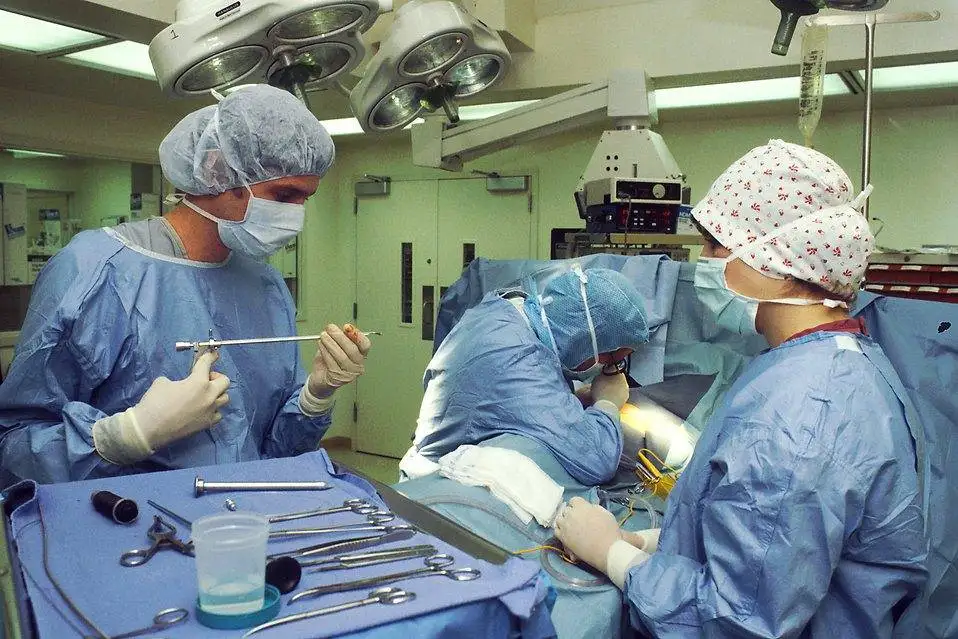Pediatricians play a vital role in monitoring a child’s growth and development. Tracking developmental milestones ensures children progress as expected and identifies areas needing attention. But how exactly do pediatricians track these milestones? Let’s explore this essential aspect of pediatric care.
What Are Developmental Milestones?
Developmental milestones are skills and behaviors most children exhibit by a certain age. These include physical, social, emotional, cognitive, and language abilities. Milestones help pediatricians and parents understand if a child is growing as expected.
Why Are Developmental Milestones Important?
Monitoring developmental milestones is crucial for several reasons:
- Early Detection of Issues: Identifying potential developmental delays or disorders early allows timely intervention. Early intervention is key to providing children with the resources to thrive.
2. Guidance for Parents: Developmental milestones provide a roadmap for parents to understand their child’s growth. Knowing what to expect can help parents support their child’s development at home
3. Ensuring Proper Development: Regular checks ensure children receive the support they need to thrive. Pediatricians guide on activities and exercises that promote development.
How Pediatricians Track Developmental Milestones
1. Regular Well-Child Visits
Pediatricians schedule regular well-child visits to track a child’s development. These visits occur frequently during the first two years and then annually. Pediatricians assess the child’s progress using standardized tools and observations during these visits. Well-child visits are crucial for several reasons, providing pediatricians to:
- Monitor growth and development.
- Administer vaccinations.
- Offer preventive care and education.
- Address parents’ concerns and questions.
2. Developmental Screenings
Ages and Stages Questionnaires (ASQ)
The ASQ is a common tool used by pediatricians. It involves parents answering questions about their child’s development in different areas such as communication, gross motor skills, fine motor skills, problem-solving, and personal-social skills.
Denver Developmental Screening Test (DDST)
The DDST is another widely used tool. It evaluates children from birth to six years old in four areas: personal-social, fine motor-adaptive, language, and gross motor skills. Pediatricians observe the child’s ability to perform specific tasks during the test.
3. Growth Charts
Pediatricians use growth charts to monitor physical development, such as height, weight, and head circumference. These charts help compare a child’s growth to standardized norms for their age and sex.
4. Developmental Checklists
Checklists help track specific skills children should acquire at certain ages. For example, by six months, a child should typically be able to sit with minimal support, respond to their name, and express emotions like joy and sadness.
5. Parental Observations
Pediatricians also rely on parents’ observations. Parents spend the most time with their children and provide valuable insights into their daily activities and behaviors.
6. Direct Observation and Interaction
During well-child visits, pediatricians observe the child and interact with them to assess their development. They play games, ask the child to perform tasks, or engage them in conversation to evaluate their skills. Pediatricians use their observations to track development in the following areas:
- Physical Development: Physical milestones involve gross motor skills (using large muscles) and fine motor skills (using small muscles). Pediatricians observe how a child moves, sit, stand, and use their hands and fingers. They check if the child can crawl, walk, or run and how they manipulate objects like toys or utensils.
- Social and Emotional Development: Social and emotional milestones include a child’s ability to interact with others, express emotions, and develop relationships. Pediatricians observe how children play with peers, respond to parents, and express feelings. They look for signs of empathy, sharing, and cooperation.
- Cognitive Development: Cognitive milestones involve learning, thinking, and problem-solving skills. Pediatricians assess a child’s ability to understand concepts, follow instructions, and pretend play. They observe how children explore their environment, solve problems, and use their imagination.
- Language Development: Language milestones involve both expressive language (speaking) and receptive language (understanding). Pediatricians evaluate how children communicate, how many words they use, and how they form sentences. They also assess how well children understand and follow directions.
Key Developmental Milestones by Age
Infants (0-12 Months)
- Physical: Rolling over, sitting up, crawling, standing.
- Cognitive: Recognizing faces, reaching for objects, exploring with hands and mouth.
- Social/Emotional: Smiling, responding to their name, showing fear or anxiety.
- Language: Babbling, imitating sounds, saying simple words like “mama” or “dada.”
Toddlers (1-3 Years)
- Physical: Walking, running, climbing stairs, kicking a ball.
- Cognitive: Sorting shapes and colors, following simple instructions, and beginning pretend play.
- Social/Emotional: Expressing emotions, showing defiance, and playing alongside other children.
- Language: Saying simple sentences, naming familiar objects, asking questions.
Preschoolers (3-5 Years)
- Physical: Hopping, standing on one foot, drawing shapes.
- Cognitive: Counting, understanding time concepts, engaging in more complex pretend play.
- Social/Emotional: Cooperating with peers, showing independence, and understanding rules.
- Language: Speaking in full sentences, telling stories, using future tense.
School-Age Children (5-12 Years)
- Physical: Refining motor skills, participating in sports, improving handwriting.
- Cognitive: Thinking logically, solving problems, understanding complex ideas.
- Social/Emotional: Developing friendships, understanding social norms, managing emotions.
- Language: Reading and writing proficiently, understanding and using grammar rules, expanding vocabulary.
Addressing Developmental Delays
Early Intervention
Early intervention is crucial for children showing signs of developmental delays. Programs and therapies are available to support children and help them reach their full potential. Here are the types:
- Physical Therapy: Helps with motor skills and physical development.
- Speech Therapy: Addresses language and communication issues.
- Occupational Therapy: Supports fine motor skills and daily living activities.
- Behavioral Therapy: Assists with social and emotional development.
Specialized Assessments
Pediatricians refer the child for specialized assessments if a delay is suspected. These assessments are conducted by specialists such as developmental pediatricians, speech therapists, or occupational therapists. Specialists provide a detailed evaluation and develop a tailored intervention plan.
Specialists, pediatricians, and parents collaborate to support the child’s development.
Parental Support and Education
Educating and supporting parents is essential. Pediatricians provide resources, strategies, and guidance to help parents support their child’s development at home. The resources of parents, as recommended by pediatricians, include:
- Books: Provide information on child development and activities to support growth.
- Websites: Offer articles, videos, and tools for tracking milestones.
- Support Groups: Connect parents with others facing similar challenges.
The Importance of Early Intervention
- Identifying Delays: Early intervention is key to addressing developmental delays. Pediatricians and parents should work together to identify any concerns early. Delays in reaching milestones can sometimes indicate underlying issues that need attention.
- Access to Resources: Many resources are available to support children with developmental delays. These include early intervention programs, speech, and occupational therapy, and educational support services. Pediatricians can guide families to the appropriate resources.
- Role of Pediatricians in Early Intervention: Pediatricians play a critical role in identifying delays and coordinating care. They refer families to specialists, recommend therapies, and monitor progress. Regular follow-up ensures that children receive the necessary support.
The Role of Parents in Monitoring Developmental Milestones
- Daily Observations: Parents are on the front lines of observing their child’s development. They note changes in behavior, new skills, and any concerns. Keeping a journal or using an app to track milestones can be helpful.
- Communication with Pediatricians: Open communication between parents and pediatricians is crucial. Parents should share their observations, concerns, and questions during well-child visits. This information helps pediatricians get a complete picture of the child’s development.
- Encouraging Development at Home: Parents support their child’s development by providing a stimulating environment, engaging in activities that promote growth, and facilitating learning through play. Reading to children, playing games, and offering opportunities for social interaction are all beneficial.
Common Concerns and Misconceptions
Every Child Develops at Their Own Pace
Children develop at different rates. Some may reach milestones earlier or later than their peers, and this variation is normal. Pediatricians look for a range of normal development rather than strict timelines.
Comparing With Other Children
Parents should avoid comparing their child’s development to others. Each child is unique and excels in different areas. Instead, focus on your child’s progress and consult your pediatrician with any concerns.
Impact of Environment and Genetics
Both genetics and the environment play roles in a child’s development. Providing a nurturing, stimulating environment can support growth, but genetic factors also influence when and how milestones are reached.
Supporting Your Child’s Development
Creating a Stimulating Environment: A stimulating environment encourages exploration and learning. Provide age-appropriate toys, books, and activities that promote physical, cognitive, and social development.
Encouraging Physical Activity: Physical activity is essential for developing motor skills. Encourage activities like crawling, walking, running, climbing, and playing with balls or other objects that promote movement and coordination.
Promoting Language Development: Talking to your child, reading together, and singing songs can help develop language skills. Encourage them to express themselves and engage in conversations.
Supporting Social Skills: Arrange playdates, attend group activities, and encourage your child to interact with peers. Teaching them about sharing, empathy, and cooperation helps build social skills.
Fostering Cognitive Development: Engage your child in problem-solving activities, puzzles, and games that challenge their thinking skills. Encourage curiosity and exploration by providing opportunities for new experiences.
When to Be Concerned
Signs of Potential Delays
While some variation in development is normal, certain signs may indicate a need for further evaluation. These include:
- Lack of Response to Sounds or Visual Stimuli: If a child doesn’t respond to sounds, their name, or visual stimuli, it may indicate a sensory issue.
- No Babbling or Gesturing by 12 Months: The absence of babbling, pointing, or gesturing can indicate a communication delay.
- No Single Words by 16 Months: Not speaking single words by this age could indicate a language delay.
- No Two-Word Phrases by 24 Months: If a child isn’t forming simple two-word phrases, it may suggest a developmental concern.
- Loss of Previously Acquired Skills: Any regression in skills, such as losing the ability to speak, walk, or interact socially, is a significant red flag.
Next Steps if Concerned
If you have concerns about your child’s development milestones, it’s important to take action:
- Schedule an Appointment with Your Pediatrician: Discuss your concerns and share specific observations. Your pediatrician conducts an evaluation and recommends the next steps.
- Request a Developmental Screening: Ask your pediatrician to perform a formal developmental screening to assess your child’s progress.
- Seek a Specialist Referral: If needed, your pediatrician refers you to a specialist, such as a developmental pediatrician, speech therapist, or occupational therapist.
- Explore Early Intervention Services: Contact local early intervention programs for assessments and support services.
When to Seek Help
Parents should seek help if they notice their child:
- Misses Major Milestones: Not meeting key milestones indicates a need for further evaluation.
- Loses Skills: Regressing in previously acquired skills is a red flag.
- Behavioral Concerns: Extreme behavior issues, such as excessive tantrums or inability to interact with others warrant attention.
- Shows Communication Difficulties: Problems with speech or understanding language should be addressed.
Resources for Parents
- Online Tools and Apps: Several online tools and apps help track developmental milestones. These resources provide checklists, activities, and information to support parents.
- Support Groups: Joining support groups allows parents to connect with others facing similar challenges. These groups offer emotional support and practical advice.
- Pediatric Resources: Websites like Omegapediatrics.com offer valuable information on child developmental milestones and parenting tips.
Work with Your Pediatrician to Track Your Child’s Developmental Milestones
Tracking developmental milestones is an essential aspect of pediatric care. Pediatricians use tools to ensure children are developing healthily. Parents play a crucial role by observing their child’s behavior and reporting any concerns.
Early detection and intervention are key to addressing developmental delays and supporting children in reaching their full potential. Through fruitful collaborations, pediatricians and parents help children thrive and achieve their developmental milestones. Every child is unique and develops at their own pace.
If you have any concerns about your child’s developmental milestones, don’t hesitate to reach out to your pediatrician for guidance and support. For more information, visit Omegapediatrics.com, where you find valuable resources and articles to help you on your parenting journey. Check out these articles for further insights:






